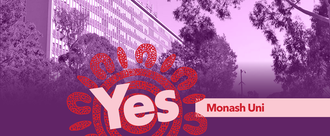- Featured
- Asylum Seekers and Migrants
- Climate and Environmental Justice
- Disability Justice
- Economic Justice
- Education
- First Nations Justice
- Health and Medicare
- International Solidarity
- LGBTIQA+ Rights
- Media and Arts
- Occupational Health and Safety
- Public Services
- Public Transport
- Racial Justice
- Social Justice
- Women's Rights
- Workers' Rights
- More
-
Protect Workers at Village Cinemas CrownHate doesn't deserve a big screen! The One-Nation-endorsed 'A Super Progressive Movie' presents itself as an edgy satire whilst really trafficking in hate. As the Australian Classification Board describes, "The entire film is full of crude humour, which trivialises the fight for equality and issues, including the rights of minority groups and those facing discrimination, including First Nations people, the LGBTQIA+ community, differently abled people, etc." Screenings previously scheduled at Parliament House have already been cancelled on the grounds that "events held at Australian Parliament House are accepted, among other requirements, of not being likely to cause offence to any part of the Australian community." Workers are entitled to a safe workplace. Hosting this film and the attendant rally of 700+ One Nation supporters will threaten that. Stand up for workers at Village Cinemas, patrons of Crown Casino and the entire affected community that Pauline Hanson's campaign of hate and division will target. Come out to the Refugee Action Collective's rally this Thursday at 5:30pm, Jeff's Shed on Clarendon St (opposite Crown Casino)432 of 500 SignaturesCreated by Tom Gojak
-
Equal Rights Equals Respect: Stop Discrimination in Queensland workplaces nowEvery Queenslander deserves the right to work or study in a space free from harassment and discrimination. The Respect at Work laws represent a crucial step forward in creating safer, more respectful spaces for all Queenslanders – whether they are at work, university, TAFE or school. These laws were the result of extensive consultation arising from the 2020 Respect@Work Report and the 2022 Building Belonging Report. Passed by Parliament in September 2024 and scheduled to commence from 1 July this year, these reforms have now been delayed. The LNP now claims everyone wants more consultation, but we know this is simply an excuse to delay these important protections without justification. These laws include important new protections against discrimination to ensure workers cannot be sacked for extreme reasons like having fertility treatment to have a child, or because they have been a victim of family and domestic violence. They also introduce a positive duty, requiring employers to proactively prevent discrimination and harassment, rather than only responding after harm has occurred. Queenslanders cannot wait any longer. These laws need to be enacted now.2,067 of 3,000 SignaturesCreated by Queensland Unions
-
Justice for Kumanjayi WhiteWarlpiri people and supporters are mobilising for justice and for systemic change in response to the horrific death in custody of Kumanjayi White. These immediate demands stem from deep grievances about the conduct of the police investigation so far are an important stepping stone towards justice. Warlpiri leader Ned Hargraves explains the circumstances of Kumanjayi White's death: "The young Warlpiri man who died in police custody in Coles in Alice Springs on Tuesday May 27 is my Jaja (grandson). I am angry and frustrated that yet another one of our young men has lost his life at the hands of the police. We know that he was held down by two police until he lost consciousness and perished. But at the moment we are in the dark about what really happened. It is disgraceful that police are already putting out stories that portray my jaja as a criminal. They are trying to run him down. We demand they stop spreading stories and show some respect. Family representatives need to see all available footage of this incident immediately - both CCTV and body cam so we can understand what happened to my Jaja - but so far they are refusing to grant this. We need an investigation completely independent of police This young man was living away from his community, in town, in supported accommodation because of his disabilities and he was very vulnerable. He needed support and not to be criminalised because of his disability. What are the police doing using such force on a vulnerable young man in a supermarket? Did they even try to de-escalate? This happened on the 5th anniversary of the death of George Floyd - during Reconciliation Week - but my people have to confront another death in custody. My people are being routinely brutalised by police. We are going into jail in record numbers - men, women and children alike. We are suffering badly under the shadow of the NT Intervention and under a Country Liberal Party government in the NT that is making many racist policies against us - sending more people to jail and threatening our sacred sites. This is making racists more confident to attack us. We have put forward many solutions to improve Warlpiri relations with the justice system that continue to be ignored. The death of my Jaja needs to be a moment when we come together to fight for change. Enough is enough! We need justice!"6,205 of 7,000 Signatures
-
Save NT Portable Long Service LeaveBecause of government funding changes, many community + disability sector workers never get to stay with one employer long enough to take long service leave. That’s why states and territories throughout Australia are legislating for portable long service leave so workers take their leave entitlements with them between employers. Northern Territory workers are about to fall behind the rest of the country because of the CLP Government. Sign the petition and stand with Australian Services Union members in calling on the NT Government to save Portable Long Service Leave.218 of 300 SignaturesCreated by ASU SA+NT Branch
-
26th January in Surfcoast ShireWhy this is important to us We, the undersigned, strongly endorse the Council’s resolution in 2021 and its pursuit of reconciliation since then. It means a great deal to us that the Council has listened to the First Nations people when they say that 26th January is a day of mourning that raises memories of stolen children, the hiding of First Nations heritage, and similar trauma within immediate family circles. What needs to happen We expect the current Councillors to uphold the Council’s first steps towards paying due respect to the Wadawurrung and Eastern Maar people. These first steps need to be consolidated and expanded upon. In the future, we hope all Shire citizens can continue to learn more about the deep and rich heritage of an ancient culture that has survived and begun to thrive again, enriching the whole community.1,913 of 2,000 SignaturesCreated by Andrew Vandenberg
-
Support Councils Moving Citizenship Ceremonies Away from Jan-26Regrettably, the Voice referendum ignited a culture of disrespect and intolerance of First Nations people in Australia. There has been increased racism targeted at First Nations people by those interpreting the referendum result as a rejection of First Nations people. At a local government level, there are ongoing attempts to undermine council’s consideration of First Nations ratepayers, and decisions regarding 26 January. These attempts are fuelled by divisive campaigns and disinformation designed to disrupt elected bodies and council administration. They do not reflect broad community sentiment nor do they promote unity in our communities. We urge councils to resist pressure to reverse evidence-based decisions that promote respect and inclusion. We commend Adelaide Hills Council for their principled decisions and leadership on reconciliation as originally proposed in their Strategic Plan 2020-24: • C1 A community for everyone – that is inclusive, welcoming and accessible • C5 Respect for Aboriginal Culture and values416 of 500 SignaturesCreated by Uraidla Reconciliation
-
Child Protection in CrisisStatutory Child Protection is in crisis. More children are at risk of harm for longer, more children are being put on orders and in out of home care. Most reports and complaints are not looked at and early intervention opportunities are missed until it is too late requiring more damaging interventions. Foster and Out of Home Care options are minimal with many jurisdictions relying on expensive private providers to house children in motels and offices with limited access to wrap around services, placing the development of children at risk. Our state child protection services are buckling due to not enough staffing and the inability to fill case workers and other positions with adequately trained social workers and psychologists. This problem lies across all jurisdictions and requires sustained national action.11 of 100 SignaturesCreated by Public Service Association
-
I'm voting Yes with Cardwell and Cassowary CoastWe believe that everyone should have a say in the issues that affect our communities. We know that when we take advice from other people with different perspectives, we can often find better solutions. Australians will all benefit from hearing the voices of Aboriginal and Torres Strait Islander people, and sharing in First Nations contributions to our national identity.5 of 100 SignaturesCreated by Karin Campbell
-
Respect Remote Working Autonomy for StaffProviding truly flexible work arrangements engenders staff goodwill and loyalty by: a) trusting us to make conscientious, responsible decisions about when it is more productive to work remotely and; b) acknowledging that some of us may find it more productive to work fewer days on campus at different times, for example during school terms, over semester breaks, according to our health status or cultural commitments and/or depending on the type of work we are doing at the time. By enabling less commuting, more flexible remote working options also enhances our sustainability strategy and improves work/life balance. Whereas, the VC’s proposal to work more days from campus than from home contradicts The University’s: • commitment to “support flexible working arrangements where reasonably possible” in the latest EBA (Clause 215) and explicit commitment to “providing flexible working options for all staff”; • aspiration to be an “employer of choice for people with disability”; • commitment to “equity, diversity and inclusion throughout the University”. We, the undersigned University of Sydney employees reject the Vice Chancellor’s “general expectation… that colleagues will spend more of their time on campus than working remotely.” We instead demand that management honours its commitment in the clause 215 of the Enterprise Agreement to allow professional staff to work remotely where “the staff member is able to satisfactorily complete the requirements of the role” and to also trust academic staff to choose when and how often to work on campus, thus ensuring an inclusive, progressive, supportive and productive working environment for all of The University of Sydney’s highly diverse workforce.1,193 of 2,000 SignaturesCreated by NTEU Members
-
Australians for YES!We believe that everyone should have a say in the issues that affect our communities. We know that when we take advice from other people with different perspectives, we can often find better solutions. Australians will all benefit from hearing the voices of Aboriginal and Torres Strait Islander people, and sharing in First Nations contributions to our national identity.3,814 of 4,000 SignaturesCreated by Australians for YES!
-
I'm voting Yes with the IEUAt the IEU, we believe that everyone should have a say in the issues that affect their communities. As unionists we know the importance of being listened to – and that when we listen to those impacted by our decisions, we get better results. That’s why this referendum is Union business. A Yes vote will be a powerful and unifying moment for our country. Proudly pledge your support today!126 of 200 SignaturesCreated by Independent Education Union Victoria Tasmania
-
Monash students for Yes!We believe that everyone should have a say in the issues that affect our communities. We know that when we take advice from other people with different perspectives, we can often find better solutions. Australians will all benefit from hearing the voices of Aboriginal and Torres Strait Islander people, and sharing in First Nations contributions to our national identity.17 of 100 SignaturesCreated by Monash students
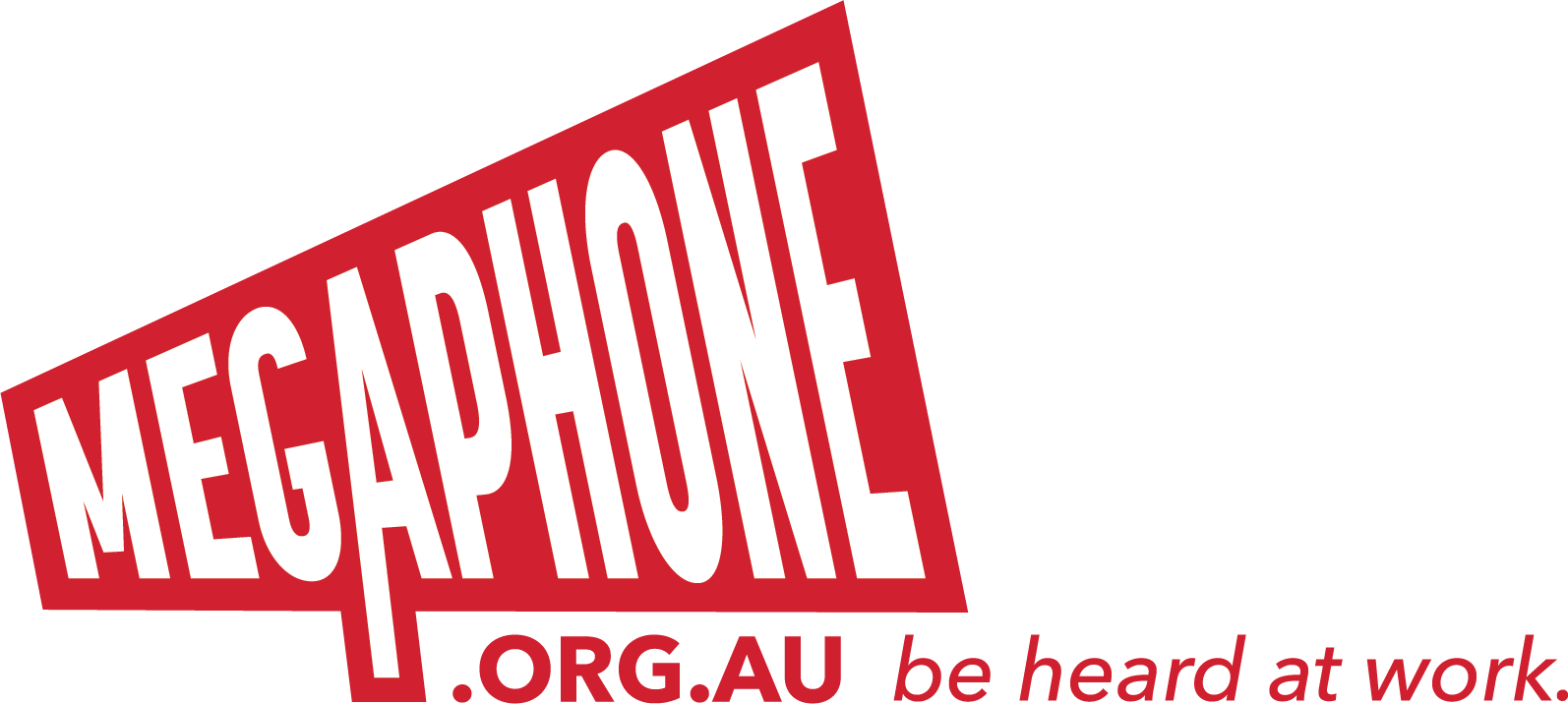
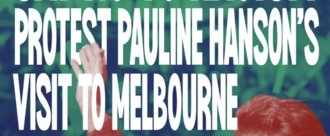
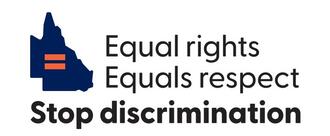
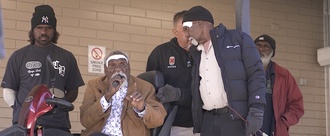
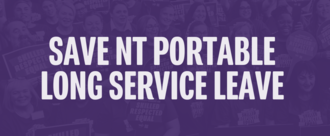.png)

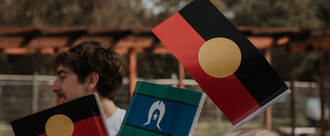


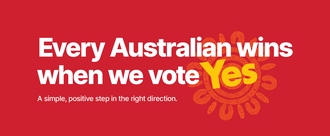
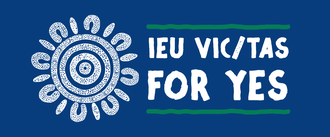.png)
